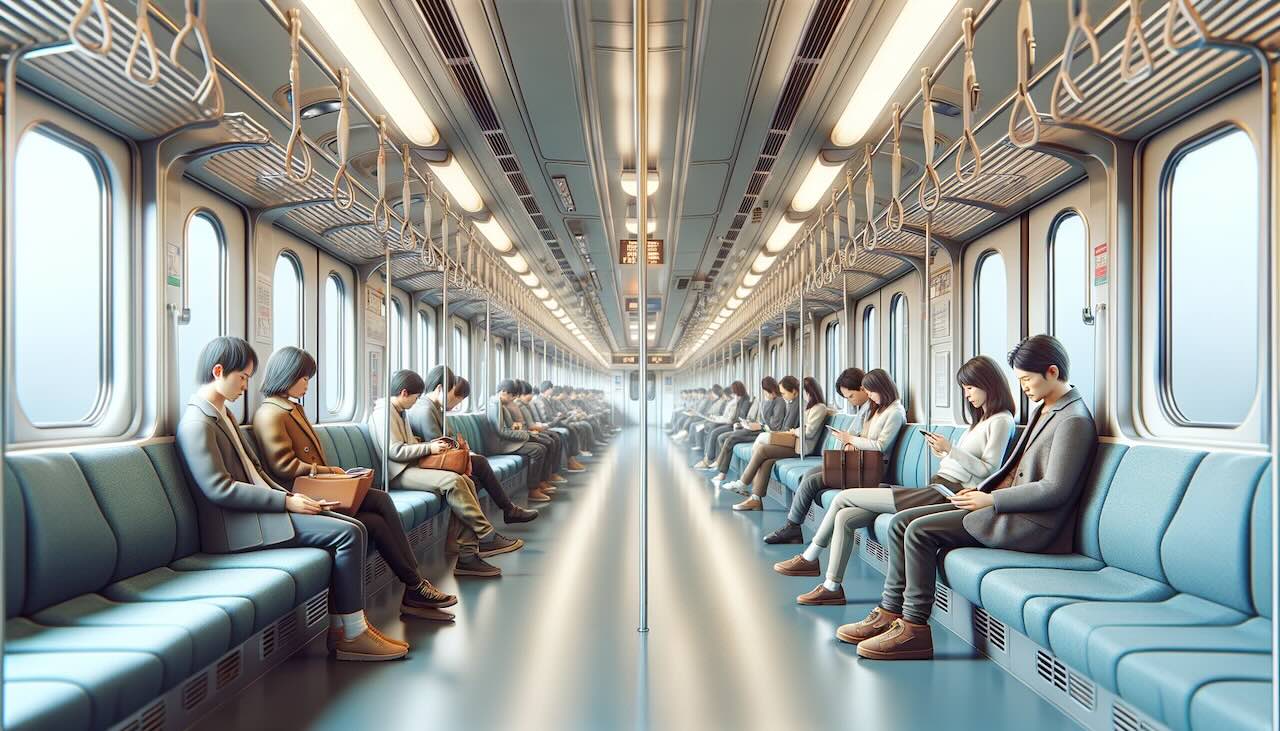Have you ever ridden a train in Japan and noticed how quiet it is?
No loud conversations. No phone calls. Just the hum of the engine and the occasional station announcement. For many visitors, this silence is striking—especially when compared to the lively chatter often heard on trains in other countries.
But is Japan the only country where quiet is expected on public transportation? And what does train etiquette reveal about national values and social norms? Let’s take a closer look.
Japan: Silence as a Form of Respect
In Japan, quiet train rides aren’t enforced by law—they’re upheld by cultural consensus. Speaking loudly, especially on the phone, is considered inconsiderate. Even friends and coworkers tend to keep their voices low. Announcements routinely remind passengers to switch phones to silent mode and avoid talking on the phone altogether.
Why? Because Japanese society places a high value on public harmony, privacy, and not disturbing others. Commuting is seen as a shared space where personal behavior should accommodate the collective good.
For many Japanese, trains are a place for quiet reflection, reading, or simply resting—especially during rush hour.
The Global Commute: How Other Countries Compare
Train behavior varies widely across the world, reflecting different cultural expectations.
Southern Europe: Lively and Social
In countries like Italy and Spain, train rides often feel like moving cafés. Passengers chat with friends, take calls, or even strike up conversations with strangers. Noise isn’t viewed as rudeness—it’s part of life. Social energy is welcomed, not suppressed.
United States and Australia: Individual Comfort First
In the U.S. and Australia, trains are more relaxed and informal. Phone calls are common, and people often listen to music, eat, or have personal conversations. The emphasis is on individual freedom—as long as you’re not overtly disruptive, you’re free to act as you please.
Trains here reflect everyday life, with fewer unspoken rules and more personal expression.
Countries That Also Value Quiet Trains
Japan isn’t alone in its quiet commuting culture. Several other countries also emphasize silence and calm on public transportation.
Switzerland
Known for order and efficiency, Swiss trains often feature designated “quiet carriages” where phone calls and loud conversations are discouraged. The peaceful landscape outside the window is mirrored by the calm atmosphere inside the cabin.
Scandinavia: Naturally Reserved
In countries like Finland, Sweden, and Norway, public quietness is part of everyday life. People generally avoid small talk with strangers and keep to themselves in public spaces—including trains. In Finland, silence is even seen as a virtue.
Singapore
With its well-known focus on public discipline and efficiency, Singapore’s MRT system encourages quiet behavior. Passengers are reminded to keep phone use discreet and conversations minimal. It’s a shared understanding rooted in respect for others’ space.
Why These Differences Exist
Train etiquette is shaped by cultural values. In Japan and places like Switzerland or Finland, silence reflects deeper societal traits:
- Consideration for others
- A preference for order and predictability
- Respect for shared space
In contrast, more expressive cultures—like those in southern Europe or North America—value openness, spontaneity, and personal freedom, even in public.
Neither approach is inherently better. They simply reflect different ideas about what it means to share space with others.
Conclusion: What Train Etiquette Tells Us About Culture
Japan’s famously quiet trains are more than a curiosity—they’re a window into a society that values social harmony, discretion, and awareness of others.
Meanwhile, trains around the world reflect their own cultures: some bustling and social, others calm and restrained.
Understanding these subtle differences helps us travel not just more respectfully—but more meaningfully. After all, how we behave in public says as much about our culture as the destinations we visit.





















